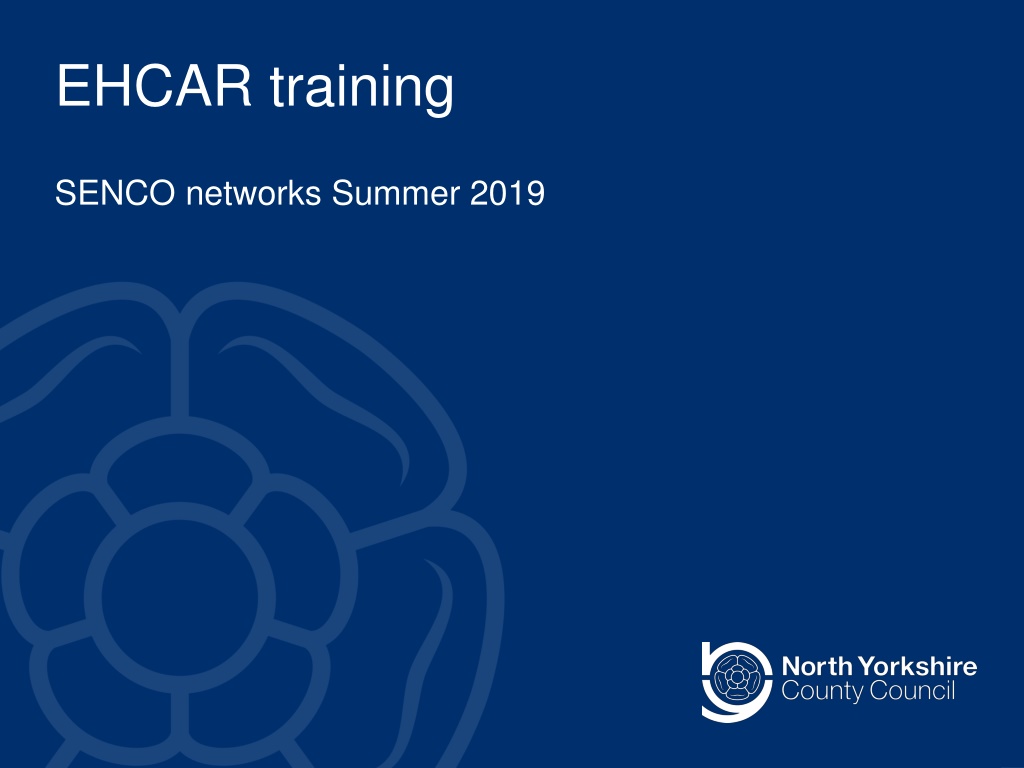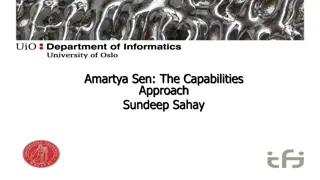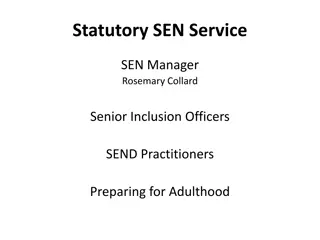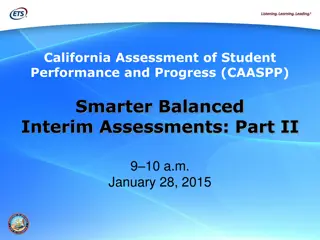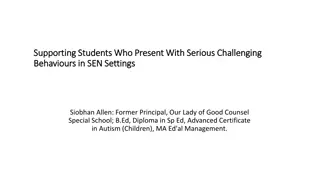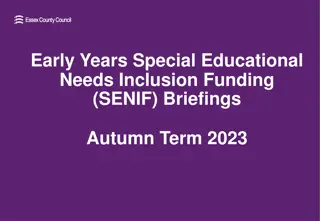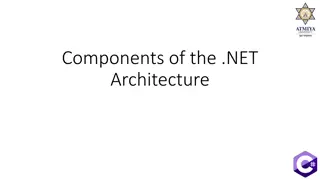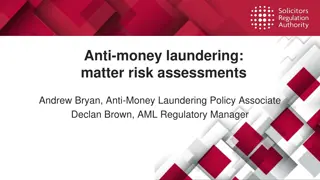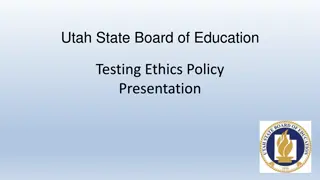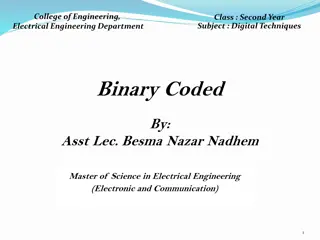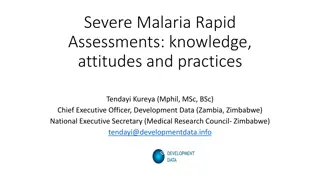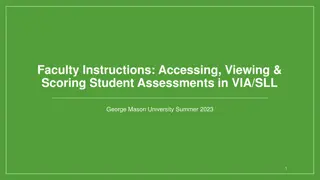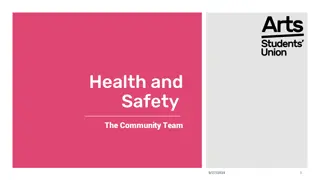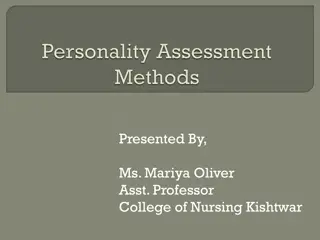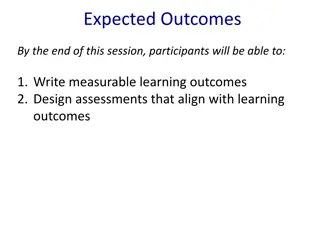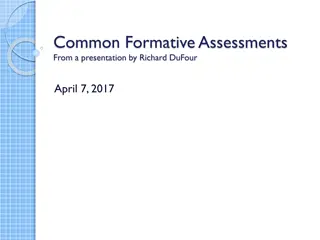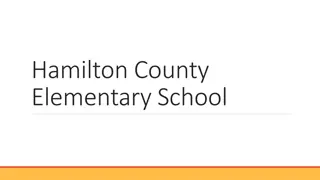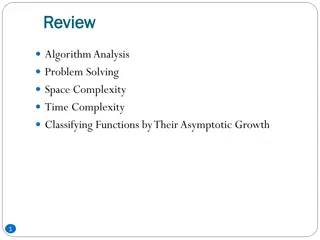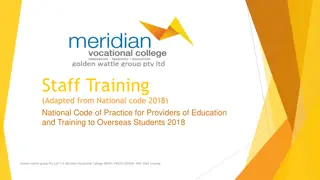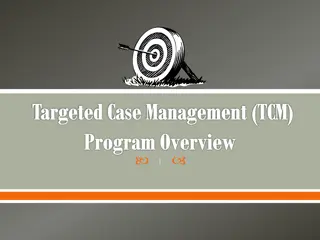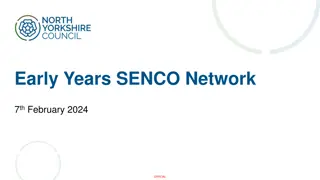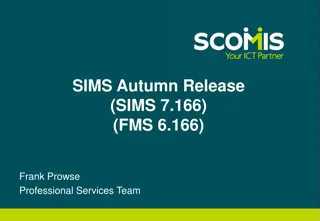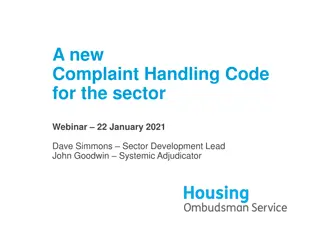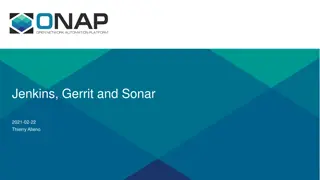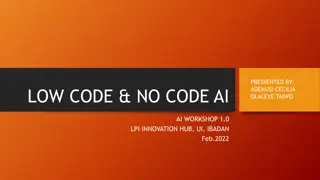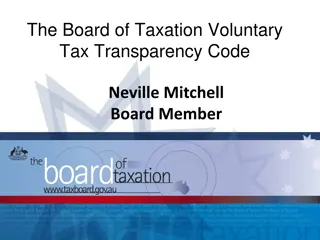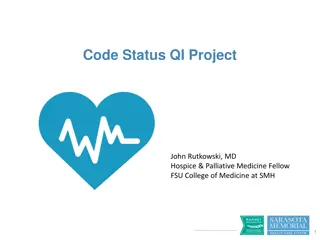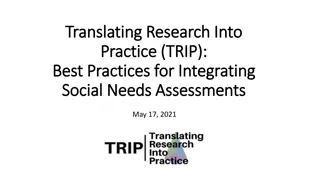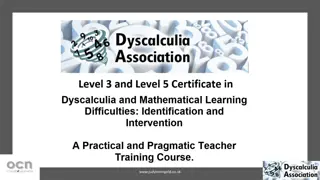Understanding SEN Support and Code of Practice for EHCAR Assessments
The Code of Practice provides guidance for schools in identifying Special Educational Needs (SEN) and determining the appropriate support necessary. It emphasizes the importance of regular progress assessments, quality teaching interventions, and collaboration between teachers and SENCO to address SEN effectively. The process involves continuous evaluation of student progress, utilizing high-quality assessments, and considering specialized support when needed. Delegated SEN funding and nationally agreed thresholds play a crucial role in facilitating this support.
Uploaded on Sep 22, 2024 | 0 Views
Download Presentation

Please find below an Image/Link to download the presentation.
The content on the website is provided AS IS for your information and personal use only. It may not be sold, licensed, or shared on other websites without obtaining consent from the author. Download presentation by click this link. If you encounter any issues during the download, it is possible that the publisher has removed the file from their server.
E N D
Presentation Transcript
EHCAR training SENCO networks Summer 2019
Session plan 1. Overview of Code of Practice related to requests for assessment 2. EHCAR form completion 3. Panel! Practical review of anonymised EHCARS 4. Discussion & feedback
Before submitting an EHCAR Chapter 6 of the Code of Practice gives schools guidance around identifying SEN and particularly around identifying where SEN may need additional and different support to that which is available at SEN support levels in an inclusive school using Quality First Teaching methods. Delegated notional SEN funding is explained and support is to be provided by schools to the nationally agreed threshold . Currently this is 6000.
Before submitting an EHCAR pre-SEN Support Some key paragraphs of the CoP: 6.17 Class and subject teachers, supported by the senior leadership team, should make regular assessments of progress for all pupils. These should seek to identify pupils making less than expected progress given their age and individual circumstances. This can be characterised by progress which: is significantly slower than that of their peers starting from the same baseline fails to match or better the child s previous rate of progress fails to close the attainment gap between the child and their peers widens the attainment gap
Before submitting an EHCAR pre-SEN Support Some key paragraphs of the CoP: 6.19 The first response to such progress should be high quality teaching targeted at their areas of weakness. Where progress continues to be less than expected the class or subject teacher, working with the SENCO, should assess whether the child has SEN. While informally gathering evidence (including the views of the pupil and their parents) schools should not delay in putting in place extra teaching or other rigorous interventions designed to secure better progress, where required. The pupil s response to such support can help identify their particular needs.
Before submitting an EHCAR pre-SEN Support Some key paragraphs of the CoP: 6.38 In deciding whether to make special educational provision, the teacher and SENCO should consider all of the information gathered from within the school about the pupil s progress, alongside national data and expectations of progress. This should include high quality and accurate formative assessment, using effective tools and early assessment materials. For higher levels of need, schools should have arrangements in place to draw on more specialised assessments from external agencies and professionals.
Before submitting an EHCAR pre-SEN Support Some key paragraphs of the CoP: 6.40 Consideration of whether special educational provision is required should start with the desired outcomes, including the expected progress and attainment and the views and wishes of the pupil and their parents. This should then help determine the support that is needed and whether it can be provided by adapting the school s core offer or whether something different or additional is required. 6.43 The overriding purpose of this early action is to help the pupil achieve the identified outcomes and remove any barriers to learning. Where it is decided that a pupil does have SEN, the decision should be recorded in the school records and the pupil s parents must be formally informed that special educational provision is being made
Before submitting an EHCAR SEN Support Some key paragraphs of the CoP: 6.44 Where a pupil is identified as having SEN, schools should take action to remove barriers to learning and put effective special educational provision in place. This SEN support should take the form of a four-part cycle through which earlier decisions and actions are revisited, refined and revised with a growing understanding of the pupil s needs and of what supports the pupil in making good progress and securing good outcomes. This is known as the graduated approach. It draws on more detailed approaches, more frequent review and more specialist expertise in successive cycles in order to match interventions to the SEN of children and young people.
Before submitting an EHCAR SEN Support Some key paragraphs of the CoP: Assess 6.45 In identifying a child as needing SEN support the class or subject teacher, working with the SENCO, should carry out a clear analysis of the pupil s needs. This should draw on the teacher s assessment and experience of the pupil, their previous progress and attainment, as well as information from the school s core approach to pupil progress, attainment, and behaviour. It should also draw on other subject teachers assessments where relevant, the individual s development in comparison to their peers and national data, the views and experience of parents, the pupil s own views and, if relevant, advice from external support services. Schools should take seriously any concerns raised by a parent.
Before submitting an EHCAR SEN Support Some key paragraphs of the CoP: Plan 6.48 The teacher and the SENCO should agree in consultation with the parent and the pupil the adjustments, interventions and support to be put in place, as well as the expected impact on progress, development or behaviour, along with a clear date for review. 6.49 All teachers and support staff who work with the pupil should be made aware of their needs, the outcomes sought, the support provided and any teaching strategies or approaches that are required. This should also be recorded on the school s information system.
Before submitting an EHCAR SEN Support Some key paragraphs of the CoP: Do 6.52 The class or subject teacher should remain responsible for working with the child on a daily basis. Where the interventions involve group or one-to-one teaching away from the main class or subject teacher, they should still retain responsibility for the pupil. They should work closely with any teaching assistants or specialist staff involved, to plan and assess the impact of support and interventions and how they can be linked to classroom teaching. The SENCO should support the class or subject teacher in the further assessment of the child s particular strengths and weaknesses, in problem solving and advising on the effective implementation of support.
Before submitting an EHCAR SEN Support Some key paragraphs of the CoP: Review 6.53 The effectiveness of the support and interventions and their impact on the pupil s progress should be reviewed in line with the agreed date. 6.54 The impact and quality of the support and interventions should be evaluated, along with the views of the pupil and their parents. This should feed back into the analysis of the pupil s needs. The class or subject teacher, working with the SENCO, should revise the support in light of the pupil s progress and development, deciding on any changes to the support and outcomes in consultation with the parent and pupil.
Before submitting an EHCAR SEN Support Some key paragraphs of the CoP: Requesting an Education, Health and Care needs assessment 6.63 SEN support should be adapted or replaced depending on how effective it has been in achieving the agreed outcomes. Where, despite the school having taken relevant and purposeful action to identify, assess and meet the SEN of the child or young person, the child or young person has not made expected progress, the school or parents should consider requesting an Education, Health and Care needs assessment (see Chapter 9). To inform its decision the local authority will expect to see evidence of the action taken by the school as part of SEN support.
EHCAR form What does a good EHCAR submission look like? First 2 pages please complete as much as you can this is the key demographic data which we will use for all correspondence going forward. Section A As far as you can PLEASE capture the child or young person s own views in whatever manner they are able to express them. Please contact the SEN Admin team if you want to send us photos / videos / voice recording as evidence for this. If it s not the child s own views please do NOT write in first person please complete but explain how those views of the child are gathered.
EHCAR form What does a good EHCAR submission look like? Section A cont please put in your views / views of teacher / views of TA as what others say . You will need to have a meeting with parents to review progress at SEN Support level and to seek consent to submit an EHCAR. At that meeting please try to gather parents views there OR arrange a time to do so as it is really helpful for panel to see what parent / carer concerns are, what outcomes they want and where their thoughts are heading in terms of statutory assessment. If you ve managed to discuss banding with them, parents views on that may be included here.
EHCAR form What does a good EHCAR submission look like? Background information please try to fill in as much as you are able to. The key question is about what difference the EHCP will make TO THE CHILD. We sometimes get comments about school funding or about avoiding PEx and neither of these tell us how an EHCP would benefit the child and what positive difference it would make. The reference to the banding is so that you can demonstrate what evidence you have that the child s needs are at AT LEAST a band 3 level requiring assessment please feel free to add the banding as an appendix with descriptors highlighted and links to the evidence.
EHCAR form What does a good EHCAR submission look like? Evidence of SEN and graduated response: The last sections look for you to provide evidence of SEN and that needs cannot be met within existing school resource the better you can describe how this is not possible within the notional SEN budget the better. We also need details of the support, interventions you have offered and what the impact has been. If there have been no outside agencies but you have drawn on tools / training / assessments / interventions that have been suggested by IES / Therapists / CAMHS etc please describe these. If there are any reports from Health or Care, please check for permission to quote and put in the relevant section.
EHCAR form What does a good EHCAR submission look like? Consent: Due to the changes to data protection and GDPR, the only reason we will refuse to accept the EHCAR (which will trigger the 20 weeks) is if we don t have consent. The 20 week process will only begin once we have accepted the EHCAR with the relevant consents. If the young person is 16 or over (and has capacity) they MUST consent for themselves alongside parent / carer and if the young person is 18 or over (and has capacity) ONLY the young person must give consent and information will not be shared with parent / carer unless the young person gives consent to do so.
EHCAR form What happens in panel? Please take a look at the anonymised EHCARs on the table. You need to make a decision on each as to whether to assess. The panel also consider the quality of the EHCAR. For each EHCAR can you identify: 1) Is there enough evidence to say that the child MAY have SEN? 2) Is there enough evidence to say that the child MAY have SEN and MAY require additional resource to meet needs? 3) Is there evidence of 2 cycles of the graduated response, details of intervention and details of assessment drawing on specialist advice? 4) Is there evidence for banding and for the difference an EHCP would make for the child?
Panel feedback 1) Discussion of each EHCAR and consensus on panel questions 2) Discussion of panel process how easy was it to come to a conclusion, was there missing information and did you all agree? 3) Questions and other feedback
